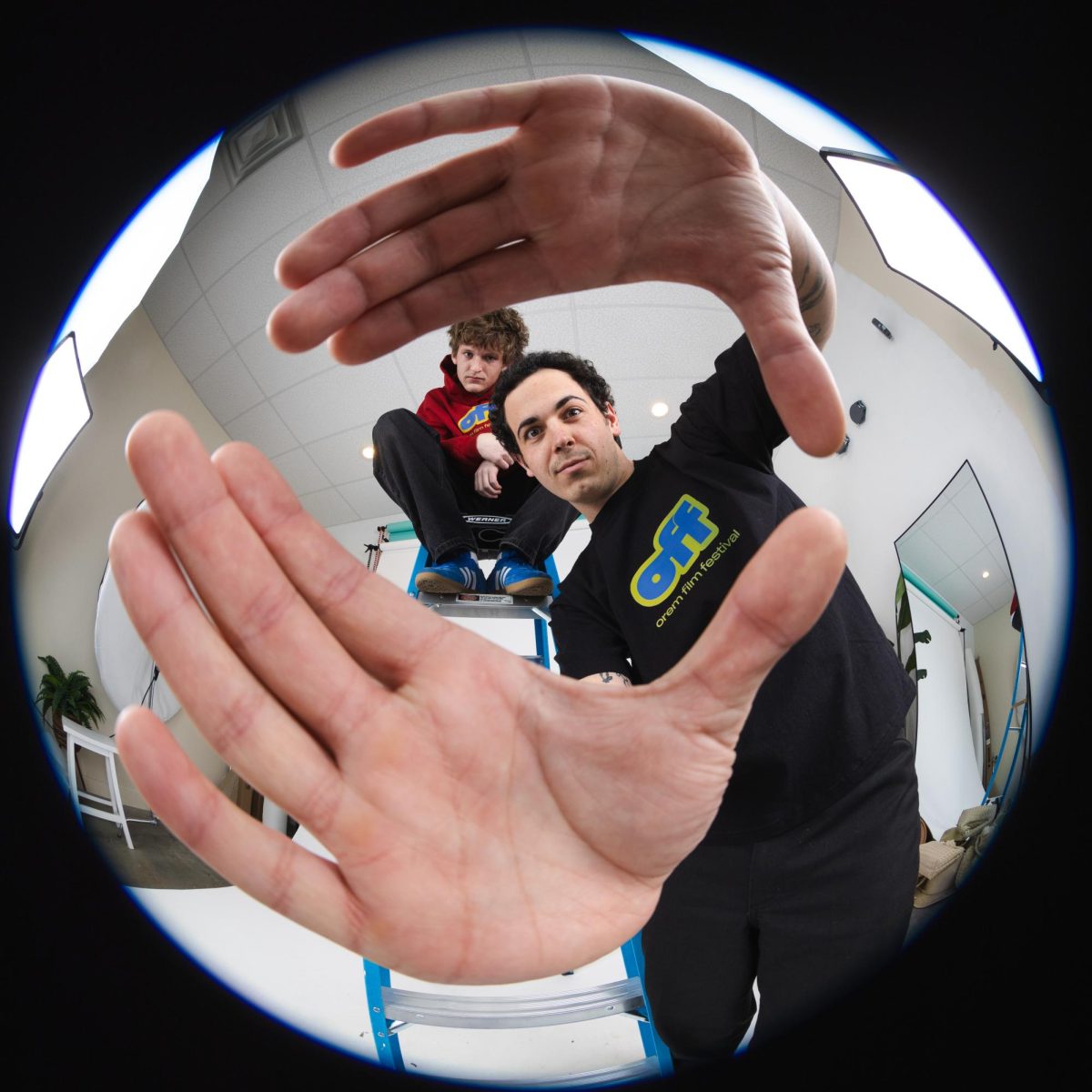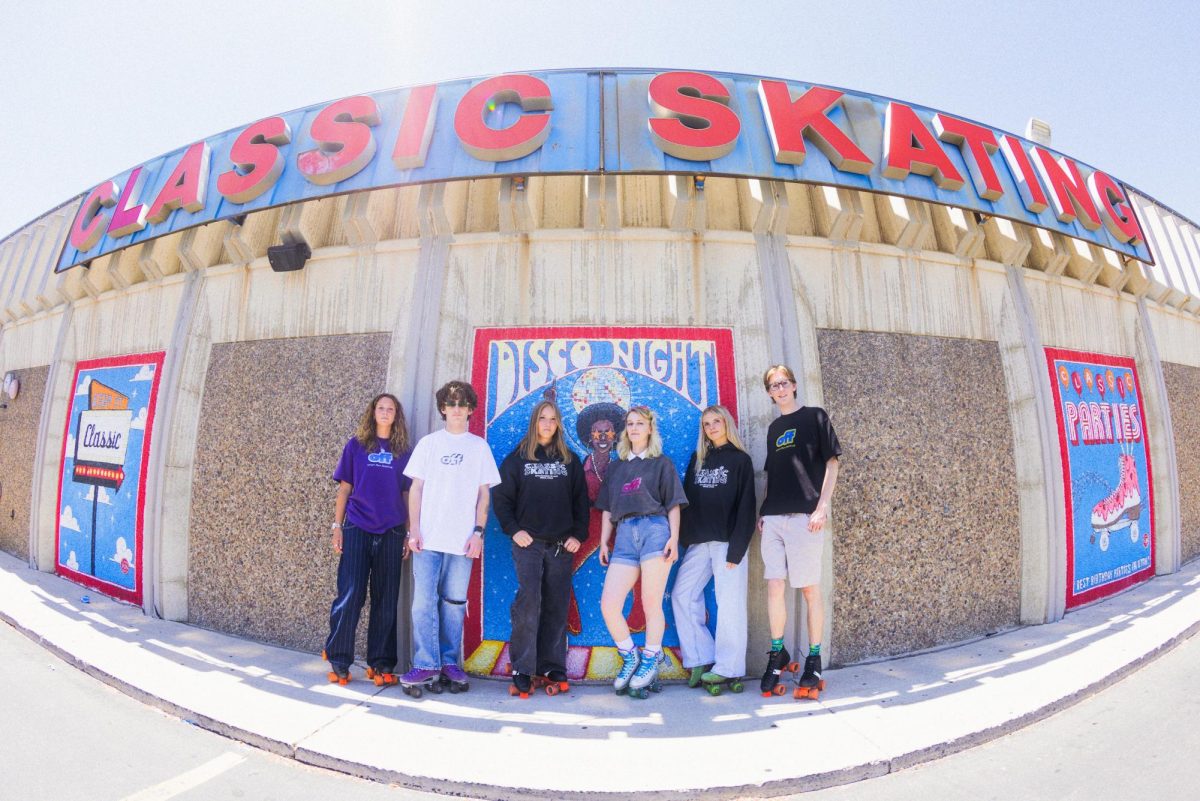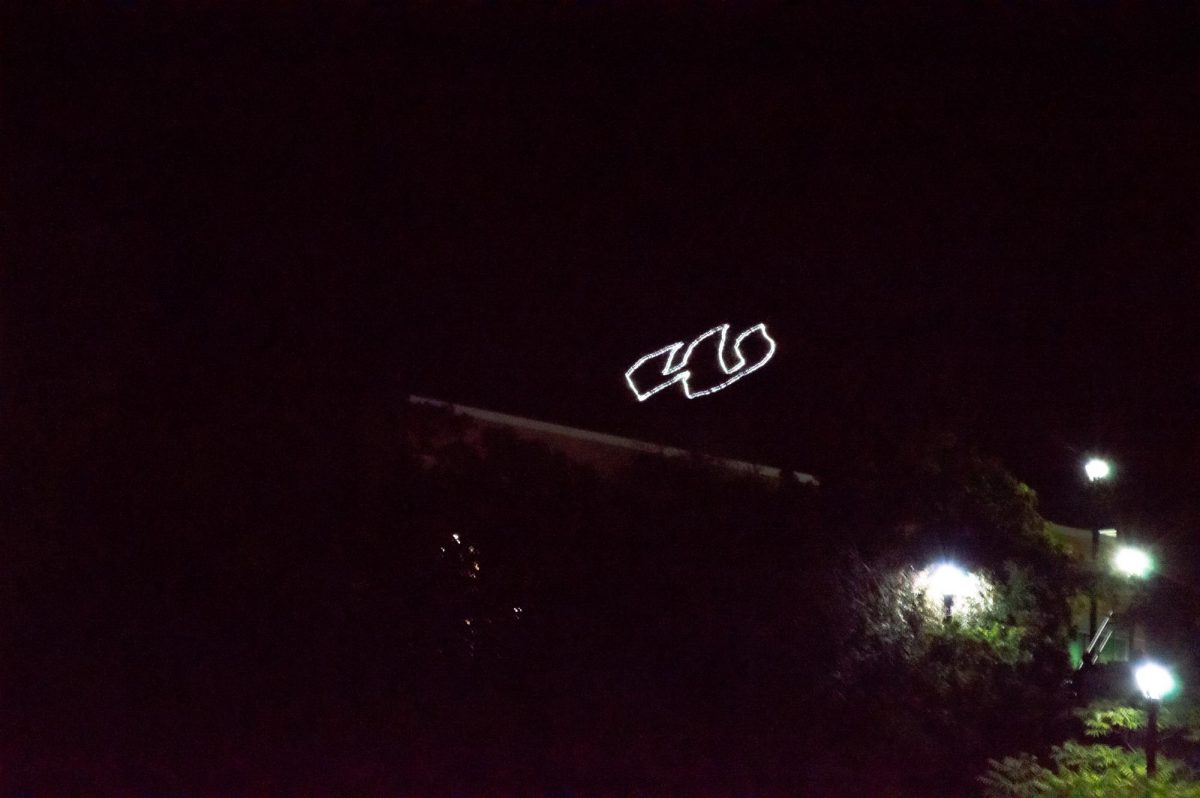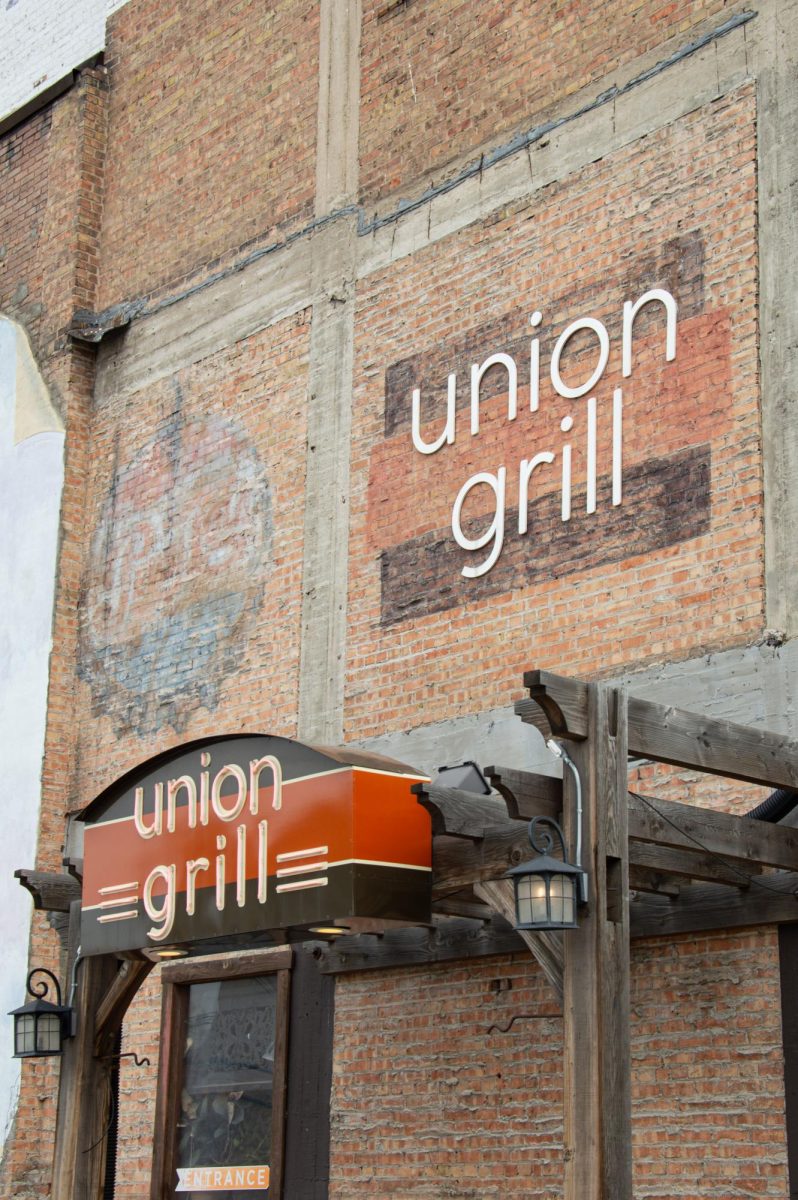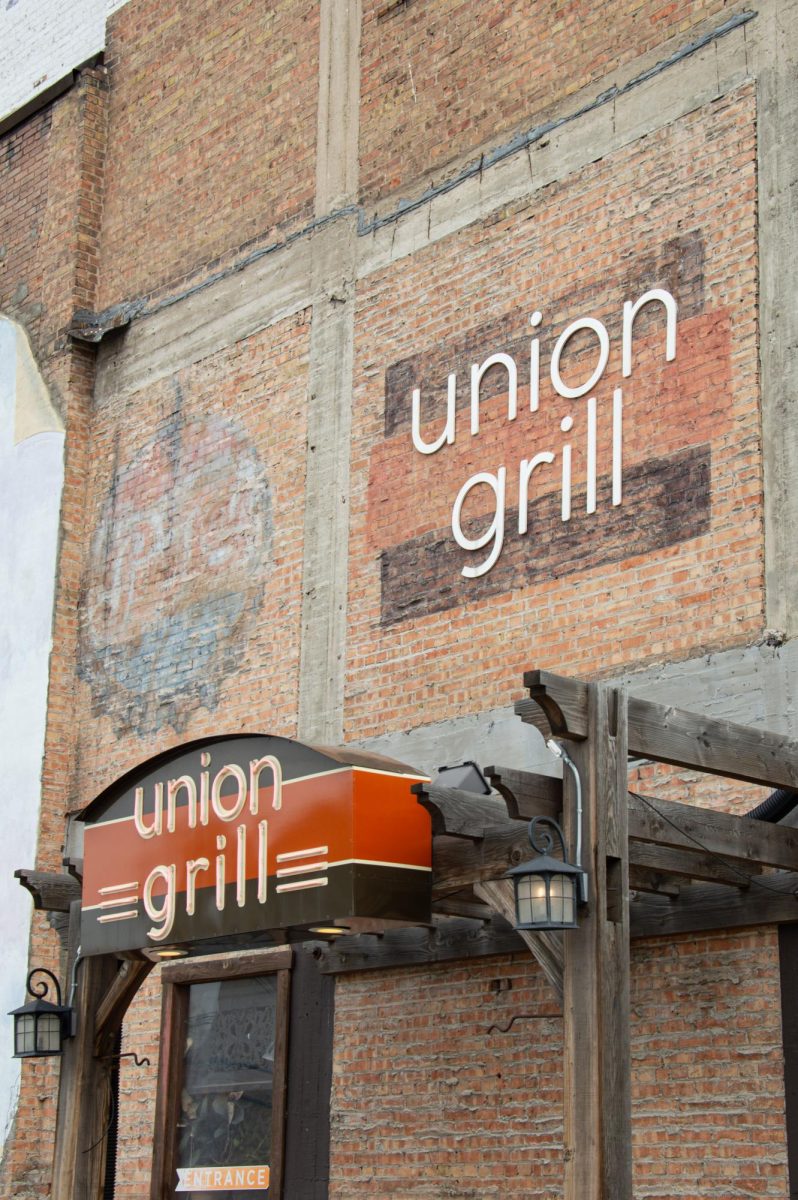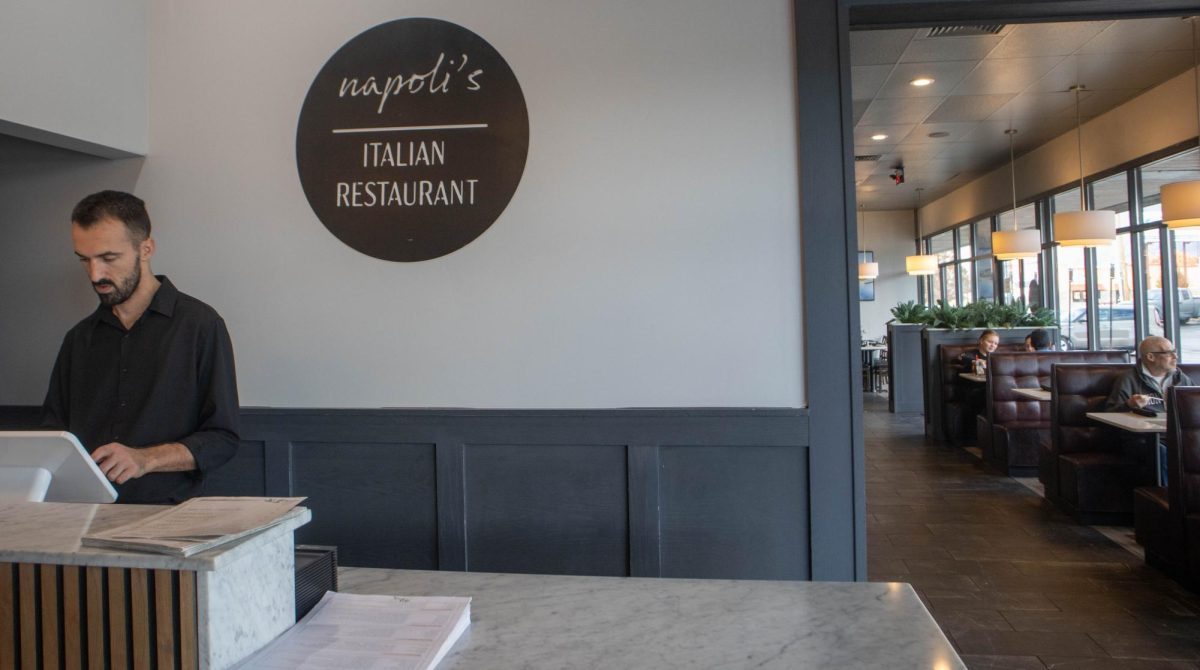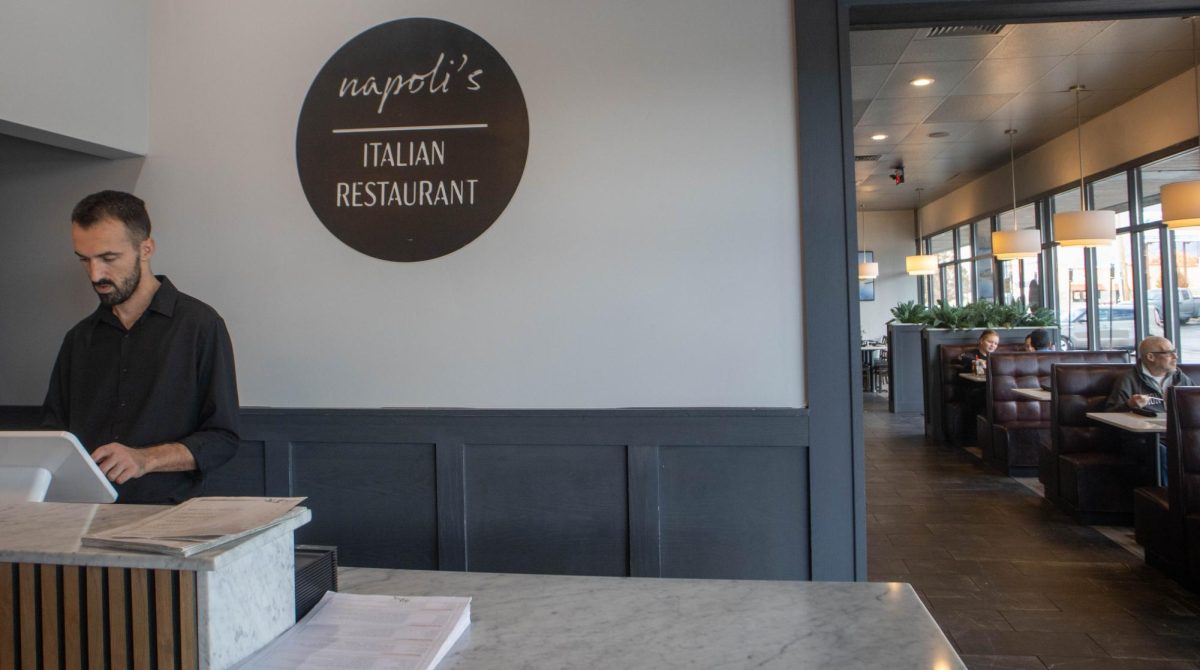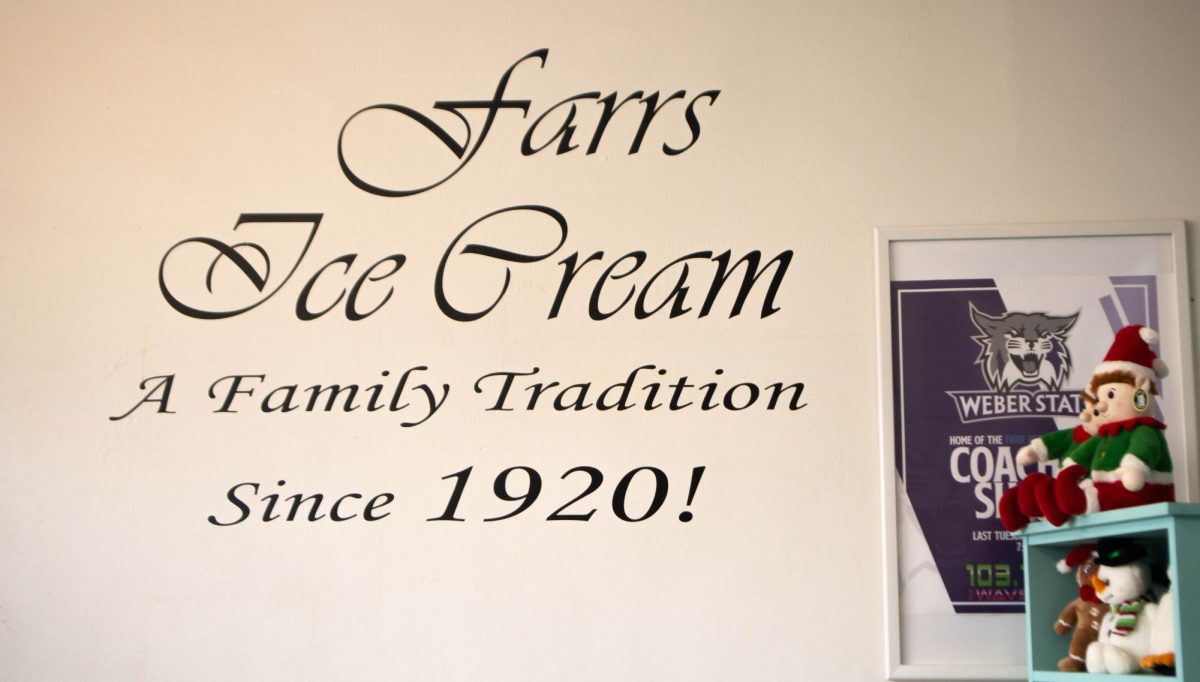Food trucks have become an increasingly popular trend across the United States. In big cities like Los Angeles, where the fad is believed to have started, it’s commonplace to see several trucks on the side of the street peddling their unique culinary creations.

This phenomenon is now gaining popularity in Utah. Social media platforms are helping raise awareness of events like the Ogden Food Truck rally that happened this Saturday just down the street from Weber State University.
Michael Alforque, a student at Weber State, who was sharing a plate of pork nachos with Amy Byer, said they decided to attend the rally after seeing the event on Facebook.
They weren’t the only ones who became aware of the rally through social media. WSU student Samantha Smith, along with Johnathon Smith, also saw the information on the event’s Facebook page. They shared a dish from the Waffle Wagon and Samantha said, “It’s really sweet…it’s good though. I’d do [this] every once in a while.”
Ben Fonua, the owner of the food truck Leila’s Luau and the restaurant of the same name, said of his food truck, “It’s the trend. You get a larger amount of customers in a shorter period of time.”

One of the reasons behind food trucks’ profitability is a huge amount of product can be sold in only four or five hours.
Food trucks are also popular because they appeal to a wide audience of people and offer a wide variety of food.
“We like to go where the people are so we can serve the people instead of having [them] try and find us,” said Shalee Timothy, the owner of both the Fizz Drinks and Waffle Wagon trucks.
Lauren Sheldon, one of the owners of That Hot Dog Place on Wheels, said it appealed to her because “I’ve been in the food business for 10 years…[we] thought it’d be really fun.”
However, owning and running a food truck comes with many obstacles.
Weber County requires a variety of permits to operate and own a food truck, as well as various restrictions that regulate where and when they can sell. “[You have to] get the building owner’s permission and the health department’s permission,” Fonua said. “All of our places are scheduled.”
Finding a location that is accessible and appealing to customers can also be a challenge. It can be difficult to predict where a food truck will be unless the events are on social media or customers have prior knowledge of where they’ll be parked at.

When asked if he would eat at food trucks more often if he knew where they would be located, Weber State student Michael Alforque said, “Absolutely, hands down yes. Especially if they were closer [to campus].”


